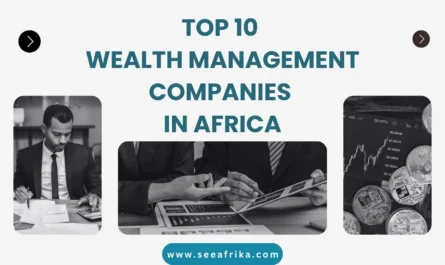The rise of African unicorns has become a remarkable phenomenon in the global startup ecosystem. These billion-dollar companies are reshaping Africa’s economic landscape and showcasing the continent’s potential.
Africa is no longer in the background but is now producing leading international startups, and tech unicorns are the new celebrities. From Lagos to Nairobi, Cairo to Cape Town, entrepreneurs are using tech-driven, scalable solutions to address regional and global issues.
In 2023, African digital firms raised more than $3.5 billion, according to Partech data. According to Weetracker, these firms had already raised over $2.1 billion, more than the $1.7 billion raised during the same period in 2023. 2024 got off to a sluggish start but picked up admirably.
In this blog, we will explore the evolution of African unicorns, their success stories, challenges, and what the future holds.
What Are African Unicorns?
African unicorns are startups that have achieved a valuation of at least $1 billion. This term was coined in 2013 to describe the rarity of such companies. Africa’s journey to unicorn status began in the early 2010s and has gained momentum in recent years.
One of the best deals of 2024 was Moniepoint’s $110 million Series C investment round in October 2024. The $250 million raised by African businesses in a single month was 43% of this raise, which was spearheaded by Development Partners International and included participation from Google’s Africa Investment Fund, Verod Capital, and Lightrock.
The investment strengthened Africa’s startup funding market and demonstrated the resilience of the continent’s expanding fintech industry.
Unicorn startups originate worldwide from various industries, young demographics, and consumer needs. All three are abundant throughout Africa.
The Pioneers: Early African Unicorns
The first notable African unicorn was Jumia, an e-commerce platform founded in 2012. Jumia’s success paved the way for future startups by demonstrating that Africa could produce billion-dollar companies. Between 2012 and 2014, it raised over $200 million and achieved unicorn status in 2016.
Following Jumia, Interswitch became the first fintech unicorn in Africa in 2019 after a significant investment from Visa. This marked a turning point for African unicorns, establishing a precedent for other startups.
The Surge of Fintech Unicorns
Fintech has emerged as a dominant sector for African unicorns. Companies like Flutterwave and OPay have made headlines with their innovative solutions.
- Flutterwave, founded in 2016, quickly rose to prominence by streamlining payment processes across Africa. It achieved unicorn status in March 2021 after raising $170 million.
- OPay, launched in Nigeria in 2018, offers mobile payment services and reached a valuation of $2 billion after securing $400 million in funding.
These examples illustrate how fintech is driving the growth of African unicorns, addressing critical issues like financial inclusion.
Diverse Sectors Contributing to Unicorn Growth
While fintech leads the charge, other sectors are also contributing to the rise of African unicorns:
- Health-tech: Startups like LifeBank are innovating healthcare solutions, making significant impacts on patient care.
- E-commerce: Companies like Jumia continue to thrive by adapting to local markets and consumer needs.
- Agri-tech: Startups focusing on agricultural technology are gaining traction by addressing food security challenges.
- EdTech: Edtech is a naturally growing sector due to Nigeria’s youthful population and rising internet penetration. Millions of people in Nigeria are receiving high-quality, reasonably priced education from startups like uLesson.
- E-commerce and Logistics: E-commerce has long been constrained by fragmented logistics, but new companies like Sendy and Jumia are closing the gap with effective delivery methods. By 2029, the e-commerce sector in Africa is anticipated to grow to $56 billion, propelled by enhanced infrastructure and increasing confidence in online purchasing.
This diversification is crucial for the sustainability of African unicorns as they navigate various market dynamics.
List of African Unicorns
Here is the list of some African unicorns.
Interswitch (Nigeria)
Mitchell Elegbe founded Interswitch in 2002, and since then, it has become a major force in integrating financial infrastructure and digital payments. Visa’s announcement in November 2019 of a US$200 million investment in fintech marked a major turning point in the company’s rise to prominence.
Eighteen (18) years after its founding, Interswitch became a unicorn with this boost, reaching a valuation of US$1 billion. In May 2022, the business raised an additional US$110 million, significantly solidifying its financial position.
Interswitch, headquartered in Lagos, operates in 14 African nations, including Kenya, where it continues to promote financial sector innovation.
Flutterwave
Flutterwave is an API-driven platform founded in 2016 in Nigeria. It aggregates payment gateways from all over the continent.
The fintech startup joined the unicorn club in March 2021, following a $170 million Series C financing, with a valuation of more than $1 billion. One of Africa’s most valuable fintech startups, Flutterwave’s $250 million Series D raised its valuation to over $3 billion in February 2022.
OPay
Co-founded in 2017 by Balder Investment, a company owned by Chinese billionaire Yahui Zhou, and Opera, the company that makes the data-lite web browser. In 2018, OPay, a mobile payment platform, launched in Nigeria.
The Fintech became a unicorn in August 2021 after raising $400 million in a Series C investment, valuing the company at $2 billion.
MNT-Halan
MNT-Halan, an Egyptian startup created in 2018 by Mounir Nakhla, is on a mission to change traditional banking across Africa and the Middle East, supporting financial inclusiveness.
The company received a boost from a US$15 million Series B investment round in January 2020, and in September 2021, it raised an incredible US$120 million. Building on this achievement, in January 2023, MNT-Halan secured US$260 million in equity and US$140 million in debt.
With a valuation of over US$1 billion, it cemented its status as one of the African unicorns with its most recent investment round in July 2024, which raised US$157.5 million.
Wave
Wave, which was founded in 2018 by Lincoln Quirk and Drew Durbin, has become a major force in the mobile service industry in Africa. In September 2021, the company became a unicorn after raising $200 million in Series A funding, bringing its valuation to $1.7 billion.
Wave was formerly a division of Sendwave, a remittance-focused startup that WorldRemit purchased for $500 million in 2020. Today, Wave operates independently.
Even though it hasn’t disclosed any new money since 2021, the startup is still among the most well-funded businesses in Africa. It delivers important mobile money solutions across Senegal, Mali, The Gambia, Côte d’Ivoire, Uganda, and Burkina Faso.
Moniepoint
Tosin Eniolorunda and Felix Ike founded Moniepoint, formerly known as TeamApt, in 2015. It is a comprehensive financial ecosystem that provides 10 million individuals and organizations with easy access to banking, credit, payments, and company management tools.
It powers the majority of point-of-sale (POS) transactions in Nigeria and is the biggest merchant acquirer in the nation. Through its companies, it processes US$17 billion monthly for its customers while running economically.
Development Partners International’s African Development Partners (ADP) III fund, a prestigious fund with an emphasis on Africa, led the company’s US$110 million Series C investment. Verod Capital, a well-known African private equity firm, and Google’s Africa Investment Fund are two more new investors. Existing investor Lightrock, a global impact firm, also took part.
Tyme
With a US$1.5 billion value, Tyme, a digital banking firm based in South Africa, has cemented its status as an African unicorn. Tjaart van der Walt and Coen Jonker founded the business in 2019, and on December 17th, it made news when it raised $250 million in capital during its Series D round.
Tyme is aiming to grow into Vietnam and Indonesia after establishing itself in South Africa and the Philippines.
The startup’s 2019 Series A round raised an initial $14 million, marking the beginning of its quest for unicorn status. After that, it raised US$110 million in a Series B round in February 2021 and another US$70 million in December of the same year.
Chipper Cash
Founded in 2018 by Ham Serunjogi and Maijid Moujaled, Chipper Cash is a fintech startup that facilitates easy cross-border money transfers for over five million consumers in the US and Africa.
In June 2020, the firm raised $13.8 million in its Series A fundraising round, marking the beginning of its quest for African unicorn status. After raising $30 million in Series B funding, its growth picked up speed by November 2020.
Chipper Cash raised US$100 million in its Series C round in May 2021, and later, in November, the company raised another US$150 million in a Series C extension. After all of this work, the company was valued at US$2 billion, solidifying its status as a unicorn.
Andela
Andela is a global network that connects software developers with employment opportunities worldwide. It was founded in 2014 by Christina Sass, Jeremy Johnson, Ian Carnevale, Nadayar Enegesi, Iyinoluwa Aboyeji, and Brice Nkengsa.
The company raised US$100 million in January 2019 during its Series D fundraising round. Later, in late September 2021, Andela raised its valuation to US$1.5 billion after securing an astounding US$200 million in its Series E fundraising round, surpassing this accomplishment.
Challenges Faced by African Unicorns
Despite their success, African unicorns face several challenges:
- Infrastructure Issues: Many regions still lack adequate infrastructure to support high-speed internet and logistics.
- Regulatory Hurdles: Navigating complex regulatory environments can hinder growth and expansion.
- Funding Gaps: While investment is increasing, many startups still struggle to secure the necessary funding for scaling operations.
Overcoming these challenges is essential for the continued growth of African unicorns.
The Role of Government and Policy
Government initiatives play a vital role in nurturing African unicorns. Supportive policies can foster innovation and attract investment. Countries like Nigeria and Kenya have established startup ecosystems that encourage entrepreneurship through funding programs and incubators.
Moreover, collaboration between governments and private sectors can enhance infrastructure development, further supporting the growth of African unicorns.
The Future of African Unicorns
Looking ahead, the future of African unicorns appears promising. The continent’s young population and increasing internet penetration provide fertile ground for new startups.
Emerging sectors such as artificial intelligence (AI) and renewable energy are likely to produce the next wave of billion-dollar companies. With continued investment and innovation, we can expect more African unicorns to emerge on the global stage.
Conclusion: A Bright Horizon for African Unicorns
The evolution of African unicorns from humble startups to global giants is a testament to the continent’s entrepreneurial spirit. As these companies continue to innovate and adapt, they will play a crucial role in shaping Africa’s economic future.
With supportive ecosystems, government initiatives, and diverse sectors contributing to their growth, the narrative around African unicorns is only beginning. The world is watching as Africa positions itself as a formidable player in the global startup arena.
As we celebrate these achievements, it’s clear that the journey of African unicorns is far from over. The next decade promises exciting developments as more entrepreneurs rise to meet the challenges and opportunities ahead.














This is so good! It has me wondering how many unicorns we’ll see added to the list in 2025!! Exciting times ahead 🔥
Yeah!!
More to be added!
More startups becoming unicorns!